STATEHOUSE REPORT | ISSUE 19.48 | NOV. 27, 2020

LOWCOUNTRY JEWEL. Charleston photographer English Purcell snapped pictures recently in the Donnelley Wildlife Management Area in Colleton County, including this grand tree dripping with Spanish moss. The 8,048-acre area, managed by the state Department of Natural Resources, is rich with Lowcountry wildlife, maritime forests and water scenes. Learn about visiting here.
 BIG STORY: Telehealth expands treatment options in rural areas
BIG STORY: Telehealth expands treatment options in rural areas
LOWCOUNTRY, Ariail: Carolina tradition?
COMMENTARY, Brack: Here’s to two good friends who will be just a click away
SPOTLIGHT: Riley Institute at Furman University
FEEDBACK: One non-fan, balanced by a fan
MYSTERY PHOTO: Mystery cabins
Telehealth expands treatment options in rural areas

By Rodney Welch, special to Statehouse Report | Sometime in 2016, Charleston doctor Constance Guille was looking at the effect of the national opioid epidemic on the people she knew best – pregnant women — and wondering how to help them.
As a reproductive psychiatrist with the Medical University of South Carolina, she knew the stats were dire.
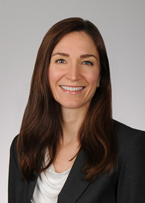
“From 1999 to 2014,” she would later note in a medical study, “the number of pregnant women with opioid use disorder (OUD) in the United States more than quadrupled, increasing from 1.5 to 6.5 cases per 1,000 hospital births.”
Worse was the fact that only a fraction — fewer than one in four women with the disorder — ever received treatment. It wasn’t hard to imagine where many lived: far-flung rural communities where addiction is compounded with both long-term unemployment and little access to health care.
How to bridge the gap? For Guille, the solution was readily apparent. Since MUSC already had video technology, why not use it to connect doctors with remote patients?
Naturally, there were questions that often greet the use of telehealth, namely whether a doctor could communicate as effectively on video as in person. Guille undertook a year-long academic study, which followed the cases of 98 pregnant women under treatment for opioid addiction. The results, published earlier this year, showed little difference between telehealth and in-person treatment.
Use of telehealth is exploding
Today, telehealth is booming at MUSC and hospitals around the state – largely because of the onslaught of COVID-19.
Through MUSC’s Center for Telehealth, medical professionals come together to reach patients and doctors throughout the Palmetto State
“It’s really an integrated care team,” Guille said. “Obstetricians, nurses, psychiatrists and addiction specialists are all kind of working together to take care of these women.”
MUSC partners in telehealth with Epic, the software firm which maintains the electronic health records for most of the country (some 250 million people) and just over half of South Carolina. The use of video, such as with Epic’s popular MyChart app, has exploded since earlier this year.
“Back in January, we were seeing about 10,000 video visits across our entire Epic community,” said Epic software programmer Taylor Seale in an interview with Statehouse Report. “In April, we saw 2.5 million. Folks got introduced to telehealth as a means of providing care during COVID, but now that we’re seeing what the tool can do, we’re looking at what it can do in the future.”
Guille said video care hasn’t hindered communication.
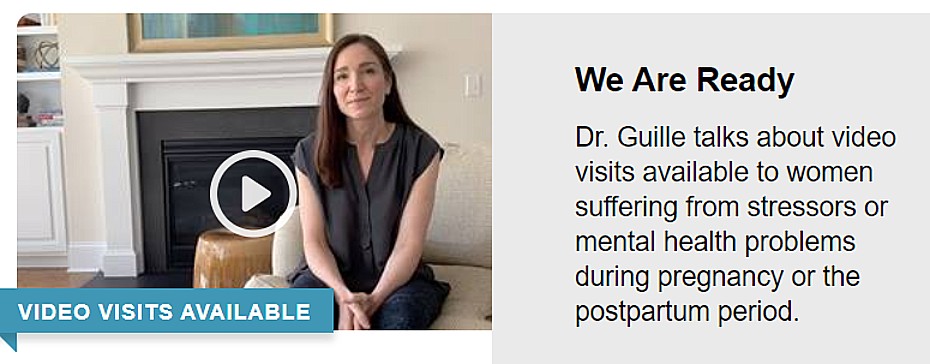 “People connect no matter what, right? The more you start talking to someone and the more you know them and the more you engage, the screen just kind of falls away.”
“People connect no matter what, right? The more you start talking to someone and the more you know them and the more you engage, the screen just kind of falls away.”
Equally important, telehealth can provide women in remote areas with powerful stabilizing medications like methadone and buprenorphine, which according to Guille increases functioning and makes the patient less likely use opioids or become involved in criminal activity.
Telehealth broadens treatment options in S.C.
Unfortunately for some women in the state, doctors are leery about prescribing these medications to pregnant women.
“I think there are a lot of people, especially in the front line of obstetric practices, that don’t have a lot of training in addiction, and so a lot of these cases are going missed,” Guille said. “The word that needs to get out is that these problems are really common – you should be looking for them in pregnant and postpartum women, and that treatment is accessible and we should be getting people linked to that care.”
There is more to be done in other ways, she said, such as re-examining state and federal laws about prescribing controlled substances via telemedicine or regulations that require a doctor to see a patient first before prescribing medications.
“There were times where we were required to see these women in person first and it delayed care,” she said. “We even had an overdose with a pregnant woman who was trying to access our care but couldn’t get to an in-person appointment. So, we really need to use more of our access capability of being able to connect immediately and being able to get people on treatment when they’re ready.”
New technology will help rural areas, senator says

For lawmakers representing rural South Carolina, the benefits of the new technology are clear.
“Telehealth is going to be the mechanism by which a lot of people receive important facets of their health care,” said Orangeburg Democratic Sen. Brad Hutto, who has already seen two hospitals close in his district.
“In the late 1960s, the heyday of health care in the state was when every little town had a doctor or two, and every county had a hospital,” he said. “Now, small towns are lucky if they have a nurse practitioner or a physician’s assistant. Many small counties don’t have hospitals or won’t have hospitals as we go forward.”
Challenges ahead
Telehealth still has some bugs to work out. Doctors have long had telehealth reimbursement issues with insurance companies, with video visits not quite counting as a real office visit. With COVID, that seems to have changed, as the necessity for more care has meant accepting telehealth for at least the time being.
But the jury is still out.
“The idea of permanently expanding telehealth services covered under Medicare has garnered widespread support,” according to a recent article in MedCity News, “but how private insurers will react is less clear.”
“The way that those changes in reimbursement were framed is that they would be reevaluated or ended at the conclusion of the state of emergency,” said programmer Seale, “which is a little bit of a gray area. We don’t exactly know when that is going to end.”
For Guille, telehealth, has become an effective means of getting help for women in need — and it’s here to stay.
“If we learned anything from COVID, [it’s that we must have telehealth],” she said. “Otherwise, we would have had no connection in the past seven months. Connection can happen in so many different ways.”
Rodney Welch is a freelance reporter who lives in Elgin.
- Have a comment? Send to: feedback@statehousereport.com
Carolina tradition?

Enjoy this week’s cartoon by Robert Ariail, republished from our sister newspaper, the Charleston City Paper. Love it? Hate it? What do you think: feedback@statehousereport.com.
Here’s to two good friends who will be just a click away
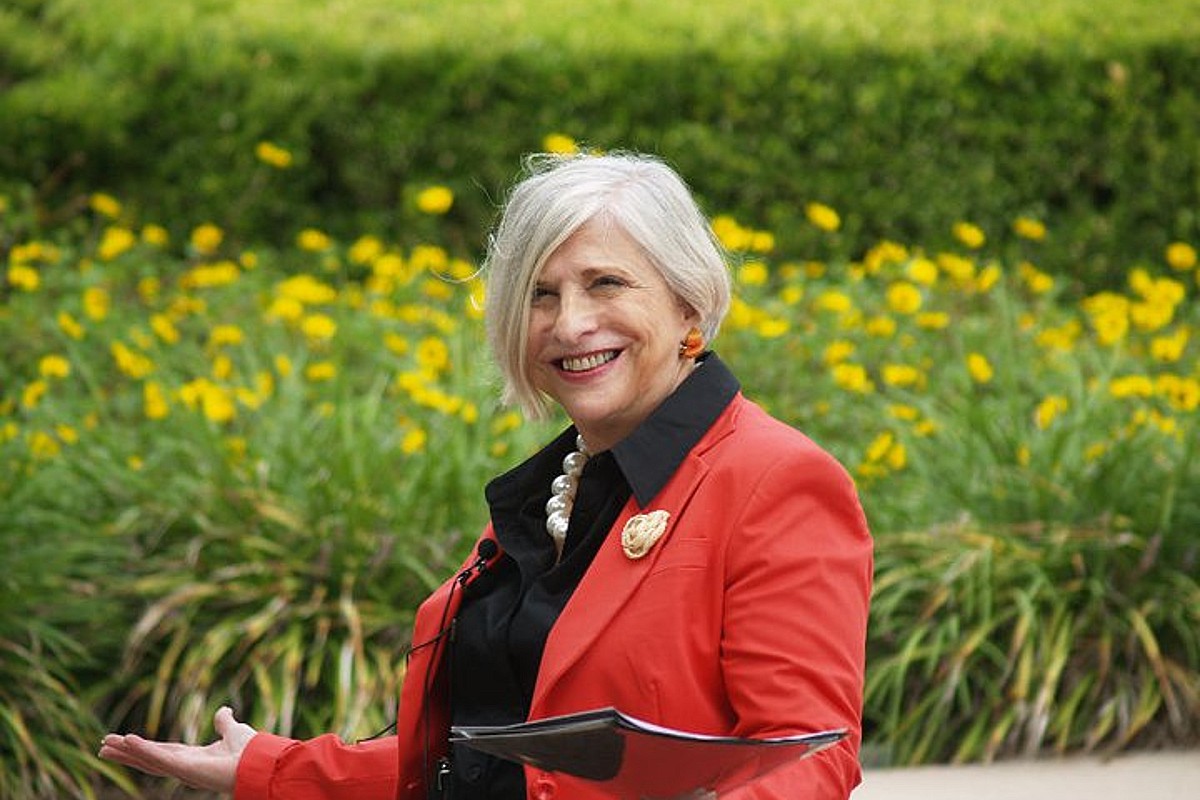
By Andy Brack, editor and publisher | In this season of thanks during a year that’s challenged everyone in new ways, let’s remember and honor friendships.
 Friends make our lives richer. They open new worlds and ideas. But they’re so familiar and comfortable that you kind of want them to never change and always be there.
Friends make our lives richer. They open new worlds and ideas. But they’re so familiar and comfortable that you kind of want them to never change and always be there.
Two longtime friends, cookbook author and foodie rock star Nathalie Dupree and historian husband Jack Bass, are leaving Charleston soon to live closer to family in North Carolina. I don’t want them to go, but at the same time, I’m happy they are embracing a change.
They’ll both be missed in Charleston, where Jack wrote powerful books and taught students at the end of a distinguished reporting and academic journalism career. In person and in print, he offers clarifying insights about South Carolina’s role in history, politics and leadership. He’s precise and literal, occasionally spending extra time in a grocery store searching for exactly the item that Nathalie asked him to pick up.

It can be a little frustrating, she’ll tell you, to live with a literalist — a person who chooses words carefully and means what he says. But she’s been in love with him and Charleston since she moved here more than 20 years ago.
That’s when she captured my heart by being kind enough to throw a high-dollar fundraiser when I ran for Congress. I lost, just like Jack did years earlier in his bid for Washington, but goodness, we had fun then and in the years since.
Nathalie is a cooking doyenne, a visionary who embraced her Southern heritage and spread the gospel about cooking good food in traditional and simple ways using local ingredients. Want to know how to make biscuits? She’s got a book on that. Want to know how to entertain comfortably? Read the book. Want to learn the ins and outs of “New Southern Cooking?” Yep, there’s a book with 350 recipes from a past cooking series on PBS.
Through the years, she’s written 15 books to connect to followers all over the world. Along the way, she’s picked up three James Beard awards — the Oscars of the food world. More importantly to Charleston, she’s been a vital cog in making it a destination city for foodies. She’s founding chairman of the Charleston Wine + Food Festival as well as the founder of the Charleston chapter of Les Dames d’ Escoffier, a national organization of women leaders in the food and hospitality industry.
“She asked me if I would want to be her recipe tester and help her out with her book (Nathalie Dupree’s Favorite Stories & Recipes), said Jeni Lata, owner of {TK} Culinary Consulting + Test Kitchen in an interview with the Charleston City Paper. “Because it was her favorite recipes, it was like going down this big old walk down memory lane with her. Nathalie is going to forever be a teacher, so it was cool because she wanted to teach me no matter what. She’s sort of this figurehead of the culinary community, and I think we’re losing someone who made it their life’s work to foster young talent.”
Nathalie and Jack are connectors who bring people together to form new friendships. At their Queen Street home, hundreds of people have sipped on a glass of wine as they talked with one of their friends from Atlanta, South Carolina, New York or Washington who had a new book out. Anyone who attended would load up on a plate of good food, meet some new friends and be able to talk with the passing luminary, such as the late John Lewis who once joined the throng to offer a book.
I’ll miss these two friends being nearby, an easy visit to gab about South Carolina politics to food. But we’ll keep up by email, social media and occasional visits.
The good news is they’re never far away because we’ve got their books. Any day of the week, you can taste Nathalie’s South by cooking one of her recipes. And in Jack’s books, you can enjoy the precision of language in nine works, from his modern history of the Palmetto State to an award-winning tome that highlights how Republican judges integrated schools across the South.
Good luck, friends, in your new endeavors. We’ll miss you.
Andy Brack is editor and publisher of Statehouse Report. His column also is published in the Charleston City Paper, Florence Morning News, Greenwood Index Journal, The (Seneca) Journal, Camden Chronicle Independent and Hartsville Messenger. Have a comment? Send to: feedback@statehousereport.com.
Riley Institute at Furman University
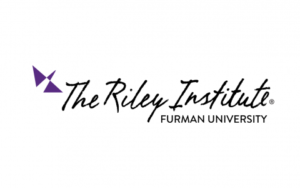 The public spiritedness of our underwriters allows us to bring Statehouse Report to you at no cost. This week’s spotlighted underwriter is Furman University’s Riley Institute, which broadens student and community perspectives about issues critical to South Carolina’s progress. It builds and engages present and future leaders, creates and shares data-supported information about the state’s core challenges, and links the leadership body to sustainable solutions.
The public spiritedness of our underwriters allows us to bring Statehouse Report to you at no cost. This week’s spotlighted underwriter is Furman University’s Riley Institute, which broadens student and community perspectives about issues critical to South Carolina’s progress. It builds and engages present and future leaders, creates and shares data-supported information about the state’s core challenges, and links the leadership body to sustainable solutions.
Launched in 1999, the Institute is named for former South Carolina Governor and former United States Secretary of Education Richard W. (Dick) Riley. It is committed to nonpartisanship in all it does and to a rhetoric-free, facts-based approach to change.
- Learn more about the Riley Institute.
- Also learn more about the Riley Institute’s Center for Education Policy and Leadership.
Not a fan …
![]() To the editor:
To the editor:
Do you get paid to write:
- The obvious;
- Trivia;
- Political views at odds with common sense; and,
- Who did you find that is dumb enough to foot the bill?
— Buck F. Brown, Greenwood, S.C.
… balanced by a fan
To the editor:
Absolutely loved your column this a.m. in the Greenwood Index-Journal re the coming state surge of COVID-19.
You should run for governor…seriously! The one we have now is an embarrassment!
— Jane Graham Sanders, Greenwood, S.C.
Send us your thoughts
We love hearing from our readers and encourage you to share your opinions. But to be published, you’ve got to provide us with contact information so we can verify your letters. Letters to the editor are published weekly. We reserve the right to edit for length and clarity. Comments are limited to 250 words or less. Please include your name and contact information.
- Send your letters or comments to: feedback@statehousereport.com
Mystery cabins
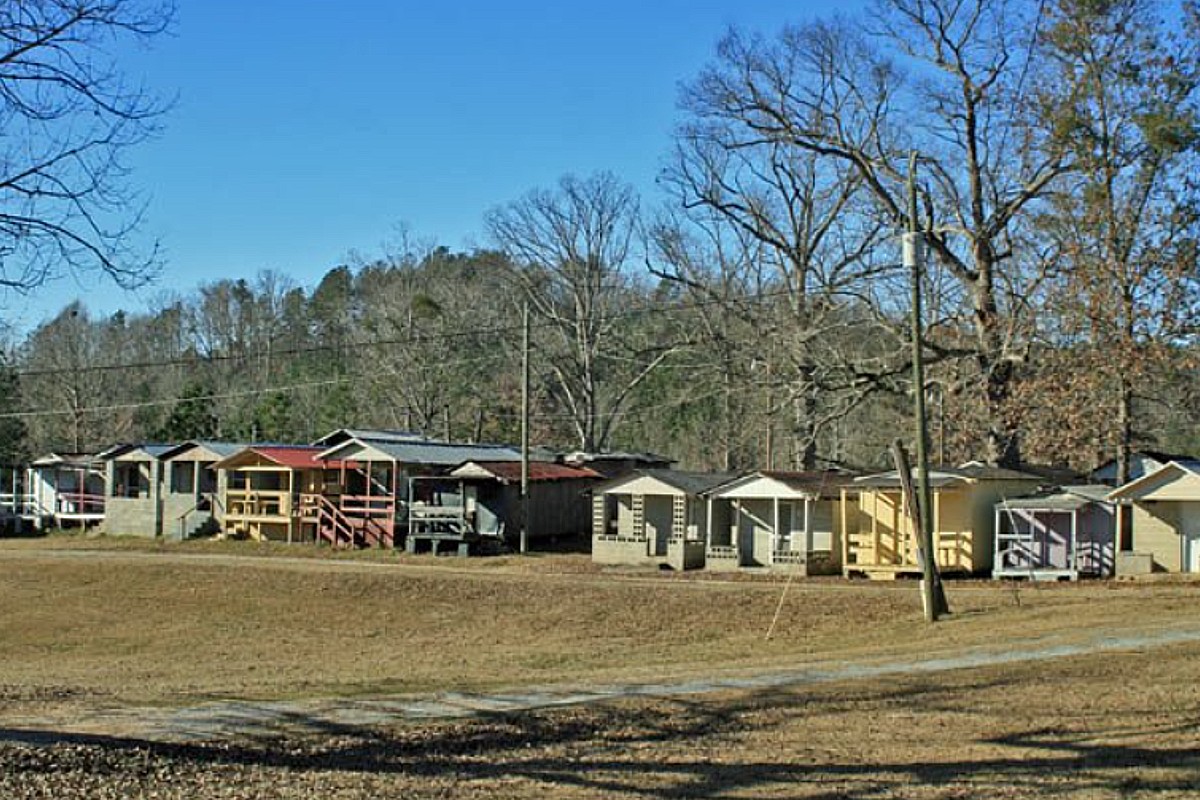
A reader snapped this picture of these cabins, located somewhere in the Palmetto State. Send your guess to feedback@statehousereport.com. And don’t forget to include your name and the town in which you live.
Our previous Mystery Photo
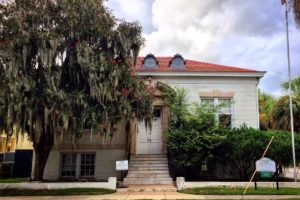 Our Nov. 20 photo, “Cool roof tiles” shows a picture of Beaufort’s old Carnegie library, which opened in 1918 on Craven Street following a $7,500 grant. It closed in 1964. Earlier this year, the City of Beaufort was awarded a $188,500 grant to restore hurricane-damaged windows in the building, which today houses the Beaufort Regional Chamber of Commerce.
Our Nov. 20 photo, “Cool roof tiles” shows a picture of Beaufort’s old Carnegie library, which opened in 1918 on Craven Street following a $7,500 grant. It closed in 1964. Earlier this year, the City of Beaufort was awarded a $188,500 grant to restore hurricane-damaged windows in the building, which today houses the Beaufort Regional Chamber of Commerce.
Hats off to Jay Altman of Columbia; George Graf of Palmyra, Va.; and Allan Peel of San Antonio, Texas, for identifying the building correctly.
Peel provided research on the building: “Property tax records reflect that the building was built in 1920, but in fact, it was built in 1917. The concept for the building started in 1911 during the 20th annual meeting of the Clover Club, a women’s literary and social group, when members discussed the need for a new permanent library after the original public library (on Bay Street) was destroyed in the ‘Fire of 1907.’ Funding for the new building came from Andrew Carnegie (1835-1919), a Scottish-American industrialist and philanthropist who led the expansion of the American steel industry in the late 19th century and became one of the richest Americans in history. During his lifetime, Carnegie donated more than $40 million of his personal fortune towards 1,679 new library buildings in communities large and small across America. Carnegie believed that “the community which is not willing to maintain a Library had better not possess it” and thus required a local contribution and a commitment for ongoing preservation and maintenance. He built 14 Carnegie libraries in South Carolina, including the Beaufort Township Library from today’s mystery photo.”
Send us a mystery: If you have a photo that you believe will stump readers, send it along (but make sure to tell us what it is because it may stump us too!) Send to: feedback@statehousereport.com and mark it as a photo submission. Thanks.
 ORDER NOW: Copies are in Lowcountry-area bookstores now, but if you can’t swing by, you can order a copy online today.
ORDER NOW: Copies are in Lowcountry-area bookstores now, but if you can’t swing by, you can order a copy online today.
ABOUT STATEHOUSE REPORT
Statehouse Report, founded in 2001 as a weekly legislative forecast that informs readers about what is going to happen in South Carolina politics and policy, is provided to you at no charge every Friday.
Meet our team
- Editor and publisher: Andy Brack, 843.670.3996
- Special correspondent: Lindsay Street
Donate today
We’re proud to offer Statehouse Report for free. For more than a dozen years, we’ve been the go-to place for insightful independent policy and political news and views in the Palmetto State. And we love it as much as you do.
But now, we can use your help. If you’ve been thinking of contributing to Statehouse Report over the years, now would be a great time to contribute as we deal with the crisis. In advance, thank you.
Buy the book
Now you can get a copy of editor and publisher Andy Brack’s We Can Do Better, South Carolina! ($14.99) as a paperback or as a Kindle book ($7.99). . The book of essays offers incisive commentaries by editor and publisher Andy Brack on the American South, the common good, vexing problems for the Palmetto State and interesting South Carolina leaders.
More
-
- Mailing address: Send inquiries by mail to: 1316 Rutledge Ave., Charleston, SC 29403
- Subscriptions are free: Click to subscribe.
- We hope you’ll keep receiving the great news and information from Statehouse Report, but if you need to unsubscribe, go to the bottom of the weekly email issue and follow the instructions.
- Read our sister publications: Charleston City Paper (every Wednesday) | Charleston Currents (every Monday).
- © 2020, Statehouse Report, a publication of City Paper Publishing, LLC. All rights reserved.


